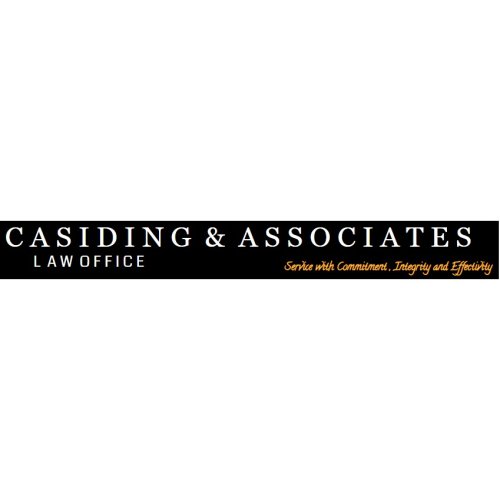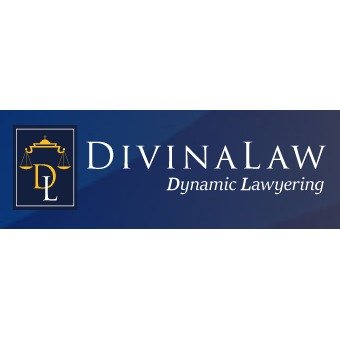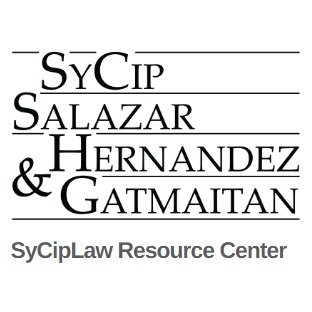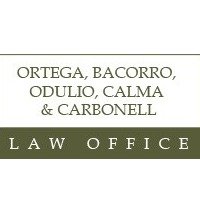Best Corporate Governance Lawyers in Makati City
Share your needs with us, get contacted by law firms.
Free. Takes 2 min.
List of the best lawyers in Makati City, Philippines
Philippines Corporate Governance Legal Articles
Browse our 3 legal articles about Corporate Governance in Philippines written by expert lawyers.
- Guide to BSP Fintech Regulatory Compliance in the Philippines
- Fintech companies in the Philippines are primarily regulated by the Bangko Sentral ng Pilipinas (BSP) under the Manual of Regulations for Non-Bank Financial Institutions. Minimum capital requirements range from PHP 20 million to PHP 200 million, depending on the license type and business model. All fintech startups must register with... Read more →
- Compliance Guide for Foreign-Owned BPOs in Philippines
- Foreign-owned BPOs must file a General Information Sheet (GIS) with the SEC within 30 days of their annual stockholders' meeting. While the Revised Corporation Code allows for 100% foreign ownership in the BPO sector, the Corporate Secretary must be a Filipino citizen and resident. Compliance is not limited to the... Read more →
- Annual Compliance Guide for Philippines Foreign Corporations
- Foreign corporations must file their General Information Sheet (GIS) with the SEC within 30 days of their annual meeting or the anniversary of their license issuance. Maintaining a local Resident Agent is a non-negotiable legal requirement for foreign branches and representative offices to receive legal notices. Audited Financial Statements (AFS)... Read more →
About Corporate Governance Law in Makati City, Philippines
Corporate governance refers to the systems, principles, and processes by which companies are directed and controlled. In Makati City - the heart of the Philippines’ central business district - corporate governance plays a crucial role in ensuring transparency, accountability, and fairness in company management. The legal framework is influenced by national laws such as the Corporation Code of the Philippines and the Securities Regulation Code, as well as rules set by the Securities and Exchange Commission (SEC) and, when applicable, the Philippine Stock Exchange (PSE). Makati hosts the headquarters of many major corporations, making compliance with corporate governance standards especially critical for business success and investor confidence in the city.
Why You May Need a Lawyer
Engaging a lawyer skilled in corporate governance can be essential for businesses, shareholders, directors, and other stakeholders in Makati City. Common reasons to seek legal advice include:
- Establishing a new corporation or modifying governance structures
- Drafting or reviewing corporate bylaws, shareholder agreements, and board resolutions
- Ensuring compliance with the latest SEC guidelines and disclosure requirements
- Handling conflicts of interest, related party transactions, or director’s fiduciary duties
- Managing shareholder disputes or issues regarding minority rights
- Dealing with director or officer liability and indemnification
- Navigating regulatory investigations or administrative proceedings
- Guiding on sustainable and responsible governance practices
Regardless of company size, legal guidance ensures that businesses in Makati City meet their legal obligations and maintain investor trust.
Local Laws Overview
Corporate governance in Makati City is primarily governed by national legislation but is especially scrutinized due to the city’s economic significance. Key aspects include:
- The Revised Corporation Code of the Philippines (RA 11232) - Sets out requirements for corporate structure, board composition, meetings, shareholders’ rights, and reporting.
- Securities Regulation Code (RA 8799) - Applies to public companies and those selling securities, with rules on transparency, disclosures, and fair practices.
- SEC Memorandum Circulars - These often enumerate best practices or additional governance rules, such as the Code of Corporate Governance for Publicly Listed Companies (PLCs) and the Corporate Governance Guidelines for Insurance Companies.
- PSE Rules - Applicable to listed companies, with specific mandates for board structures, committees, and timely disclosures.
- Anti-Money Laundering Act and Data Privacy Act - Impact compliance programs and how information is managed by corporations.
Authorities in Makati carry out regular audits and monitor corporate compliance rigorously. The regulatory environment places a premium on ethical conduct and proper disclosure standards.
Frequently Asked Questions
What is corporate governance and why is it important in Makati City?
Corporate governance refers to the rules and systems that direct and control corporations. In Makati City, where many top companies are headquartered, strong governance ensures transparency, sustainable growth, and investor protection.
Who regulates corporate governance in Makati City?
The primary regulator is the Securities and Exchange Commission (SEC) of the Philippines. For public companies, additional oversight comes from the Philippine Stock Exchange (PSE).
What are the key responsibilities of corporate directors and officers?
Directors and officers are responsible for acting in the corporation’s best interest, observing fiduciary duties, complying with the law, and ensuring accurate disclosure and proper risk management.
How often must corporations hold board meetings and stockholders’ meetings?
The law requires at least one annual stockholders’ meeting and regular board meetings as stated in the bylaws, usually every quarter.
What are the main requirements for board composition in publicly-listed companies?
Publicly listed companies must have independent directors making up at least 20 percent of the board, and must comply with diversity and expertise requirements outlined by the SEC.
What is a related party transaction and how should it be handled?
A related party transaction involves dealings between the company and related entities or individuals, such as major shareholders or directors. These must be disclosed and conducted on an arm’s length basis, with approval and oversight systems in place.
What are the penalties for violations of corporate governance laws?
Violations can result in administrative fines, suspension or revocation of licenses, civil liability, and potentially criminal prosecution depending on the severity and nature of the breach.
How are shareholder disputes typically resolved?
Shareholder disputes can be resolved through internal grievance mechanisms, mediation, arbitration, or as a last resort, litigation before the proper courts.
What disclosures must companies make under Philippine law?
Companies must regularly report their financial position, material changes in corporate structure, conduct of board meetings, and any significant transactions as required by the SEC and, if listed, the PSE.
Can a foreigner serve as a director or officer in a Philippine corporation?
Yes, but there are restrictions in certain sectors (such as those subject to foreign ownership limits). Usually, a majority of the board must be Philippine citizens.
Additional Resources
For more information and assistance, you may contact or consult the following:
- Securities and Exchange Commission (SEC), Philippines
- Philippine Stock Exchange (PSE)
- Integrated Bar of the Philippines - Makati Chapter
- Makati Business Club
- Philippine Institute of Corporate Directors (ICD)
- Board of Investments (BOI), Philippine Department of Trade and Industry
- Data Privacy Commission (for data governance matters)
Many organizations and law firms in Makati City also run seminars, provide guidance materials, or offer consultations on best practices in corporate governance.
Next Steps
If you believe you need legal advice or are facing a corporate governance issue in Makati City, consider the following steps:
- Identify the specific area of concern or compliance issue within your business or investment.
- Gather relevant company documents such as articles of incorporation, bylaws, board resolutions, and any prior correspondence with regulators.
- Contact an experienced corporate lawyer or a law firm specializing in corporate governance in Makati City.
- Schedule a consultation to explore your legal options and obligations.
- Engage in regular training and capacity building for directors, officers, and key personnel to remain updated on governance requirements.
Early legal intervention can prevent costly disputes and ensure your corporation operates credibly and efficiently within Makati’s robust legal environment.
Lawzana helps you find the best lawyers and law firms in Makati City through a curated and pre-screened list of qualified legal professionals. Our platform offers rankings and detailed profiles of attorneys and law firms, allowing you to compare based on practice areas, including Corporate Governance, experience, and client feedback.
Each profile includes a description of the firm's areas of practice, client reviews, team members and partners, year of establishment, spoken languages, office locations, contact information, social media presence, and any published articles or resources. Most firms on our platform speak English and are experienced in both local and international legal matters.
Get a quote from top-rated law firms in Makati City, Philippines — quickly, securely, and without unnecessary hassle.
Disclaimer:
The information provided on this page is for general informational purposes only and does not constitute legal advice. While we strive to ensure the accuracy and relevance of the content, legal information may change over time, and interpretations of the law can vary. You should always consult with a qualified legal professional for advice specific to your situation.
We disclaim all liability for actions taken or not taken based on the content of this page. If you believe any information is incorrect or outdated, please contact us, and we will review and update it where appropriate.

















